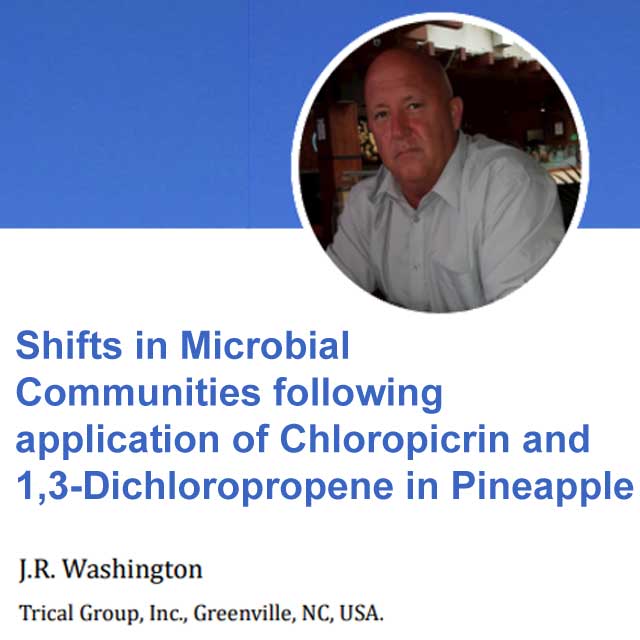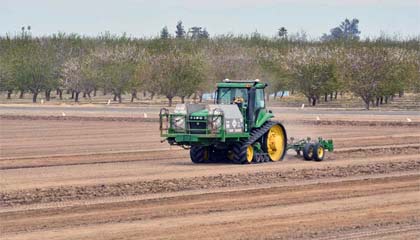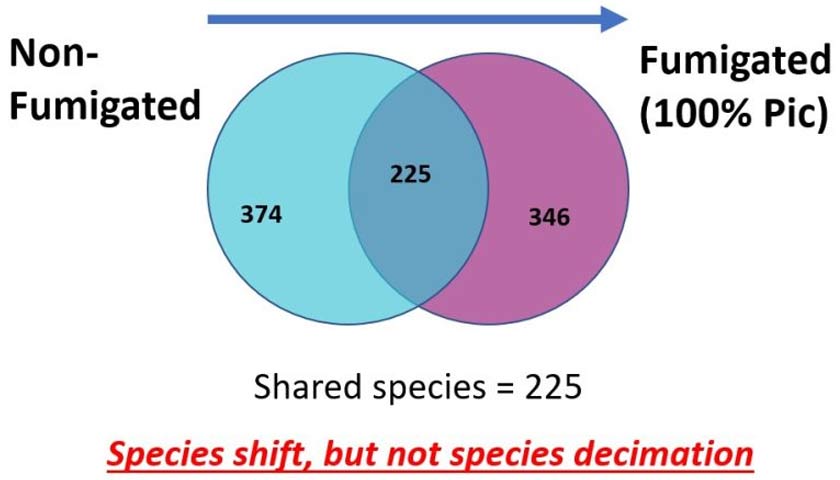
Trical Group's John Washington released a paper on fumigation using Chloropicrin and 1,3-dichloropropene (1,3-D) and its impact on microbiological communities and soil health.
Read More

Trical Group's John Washington released a paper on fumigation using Chloropicrin and 1,3-dichloropropene (1,3-D) and its impact on microbiological communities and soil health.
Read More

Soil fumigation is highly effective at managing soil pests that cause crop disease. However, it is regularly accused of doing more harm than good to overall soil biology. Advances in genetic sequencing technology can now show how fumigation actually changes bacterial and fungal populations in agricultural soil, and the close-up look is surprising.

What the studies conclusively show is that in the weeks and months following soil fumigation with chloropicrin, soil microbial communities (bacteria and fungi) shifted in remarkable and quantifiable ways.